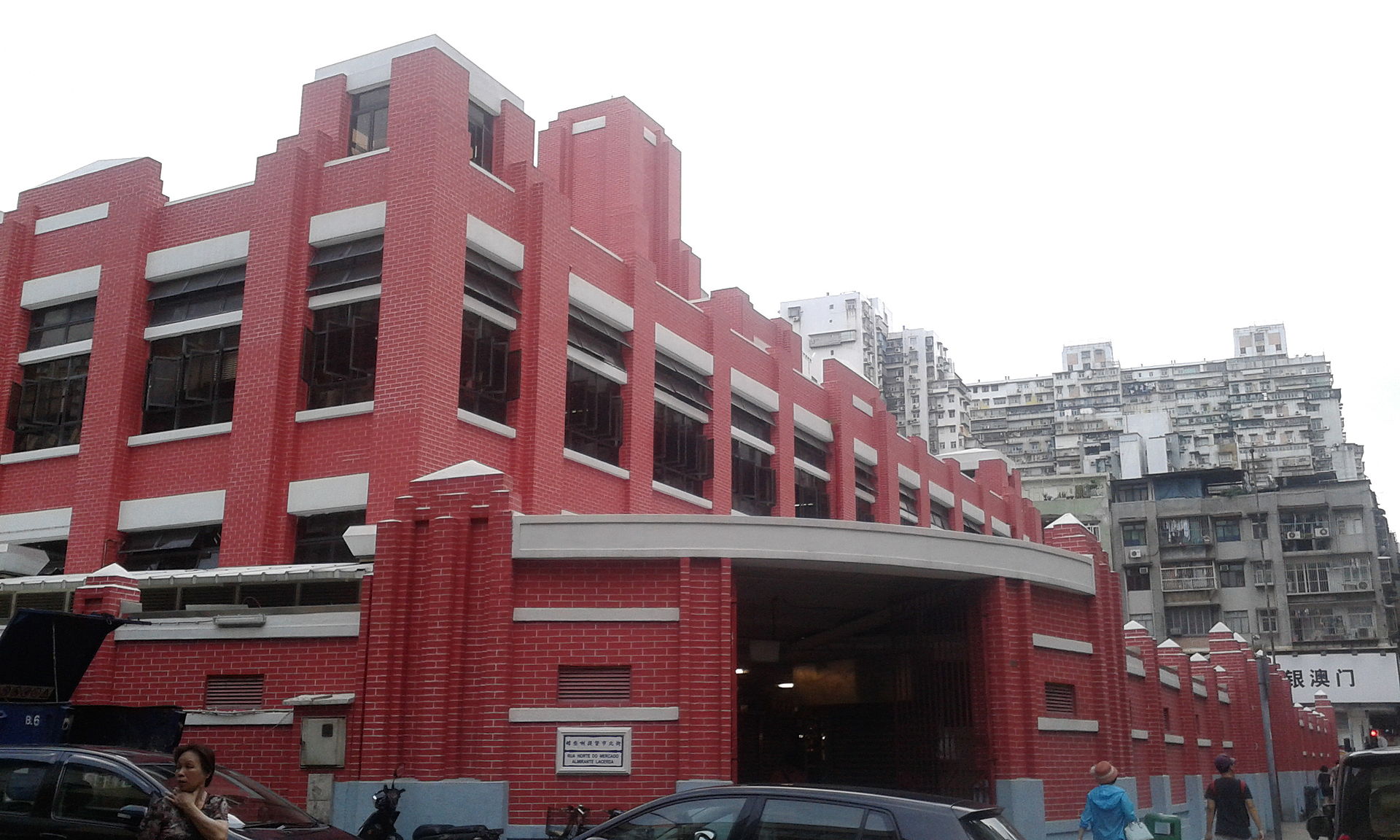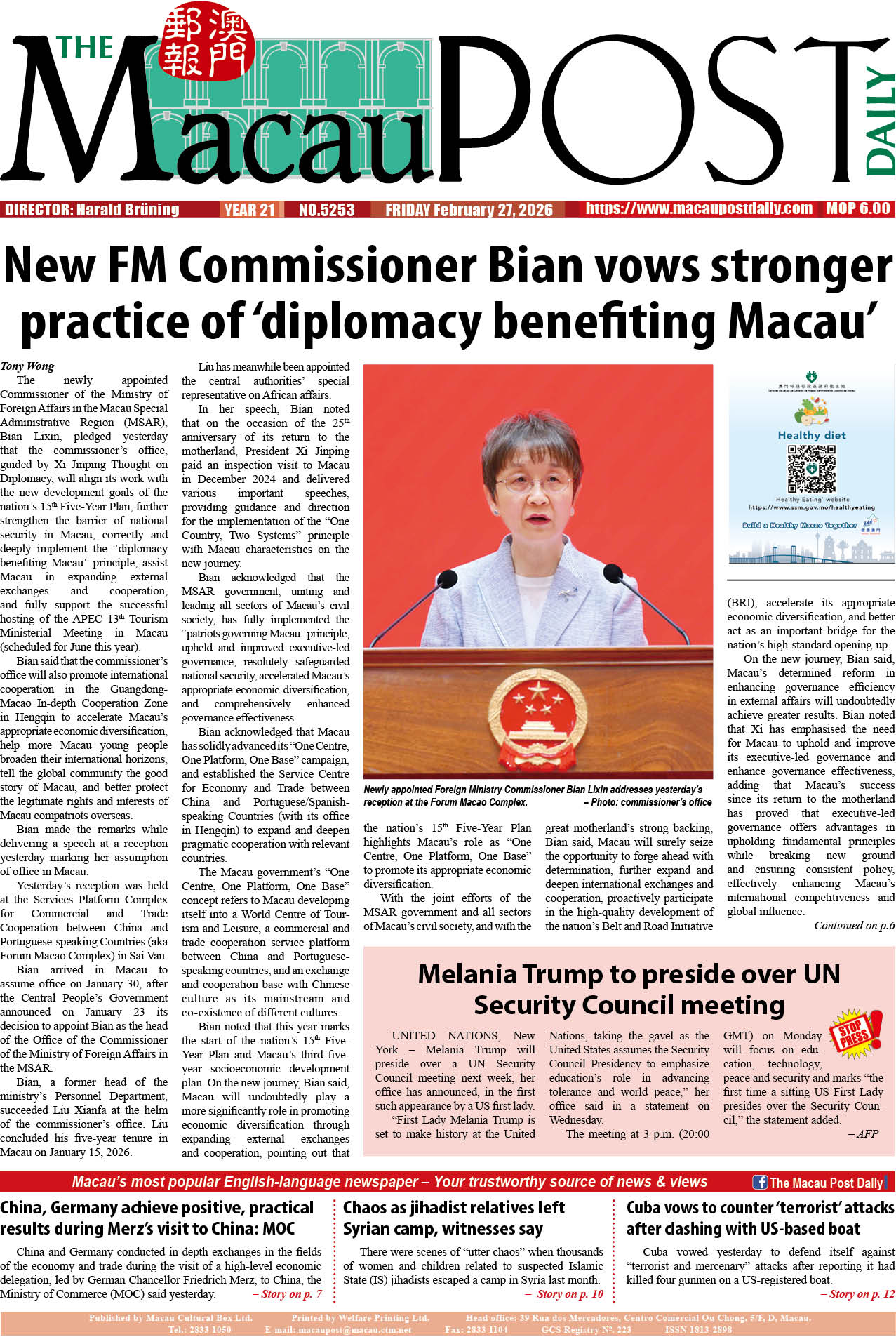Editorial
Much to my delight, there has finally been long-overdue good news on Macau’s vaccination front when the Health Bureau (SSM) announced this week that the population’s vaccination rate had reached nearly two-thirds as of Monday afternoon.
Glad tidings indeed!
Leong Iek Hou, who heads the bureau’s Control of Communicable Diseases Department, described the increase in Macau’s vaccination rate as “consistent and ideal”.
Yes, comparatively speaking, the two-thirds threshold is “ideal”. Of course, in absolute terms, it isn’t.
What we need rather urgently is to reach a rate of at least 80 percent of fully vaccinated residents in order to protect ourself and all those around us, and enable the government to ease at least some of its long-running COVID-19 control and prevention curbs.
The Chinese mainland and Portugal have, for instance, been exemplary in their mass vaccination drives.
Moreover, Leong acknowledged that the jab rate among juniors and seniors is still worryingly low. As of Monday afternoon, it stood at just 45.8 percent among those aged between 12 and 19, while the rate of those aged between 70 and 79 amounted to only 30.7 percent. Most disconcertingly, the rate for octogenarians, nonagenarians and centenarians (I wish all of them a long life) stood at a paltry 8.3 percent.
The challenge now is to convince the remaining third to get vaccinated – to protect themselves and all those around them. My personal experience is that there are very few “ideological” anti-vaxxers in Macau, perhaps just a few percent of the population. I have only met a handful so far who told me that they were “fundamentally” opposed to inoculations, not just COVID-19 shots. Some cited health concerns, some of them possibly justified to a certain degree, while others claimed that they were opposed to the needle for religious or (pseudo-)scientific reasons.
Those of my friends and acquaintances who still haven’t had their anti-COVID-19 jab have told me that they are “waiting.” When asked what they are waiting for, their standard answer has been that they are “waiting to see what will happen.”
Well, if one wants to “wait to see what will happen” then one can wait for ever since there is always something that is going to happen. The crux of the problem is, what do they expect to happen? That the darned virus vanishes as abruptly as, apparently, it appeared? That someone comes up with a “miracle drug” before long?
Perhaps, one day a simple pill will suffice to get the virus under control. However, according to the current state of pharmaceutical research, antiviral pills won’t be able to substitute jabs in the foreseeable future. Of course, science is a process of research and the knowledge accumulated through the process so it’s possible (or even probable) that one day a tablet, pellet, capsule or even a lozenge could replace the need to get vaccinated.
However, this doesn’t seem to be possible in the short term.
That’s why I think that all this “I am waiting” argument is rather futile – and it eerily reminds me of one of my favourite plays, Waiting for Godot by Irish playwright and novelist Samuel Becket. Those familiar with the elemental but fundamental play (which has attracted a wide range of starkly diverse interpretations from Jungian and Freudian to Existential and Christian – among others) know that Godot never arrives.
One can only hope that unlike the play’s two main characters, Didi and Gogo, Macau’s COVID-19 vaccine hesitators won’t wait in vain for Godot and instead accept reality as it is – which, I admit, is often harsh – and finally get jabbed for their own and their fellow human beings’ good.
Globally, COVID-19 remains a formidable threat. Our battered planet’s novel coronavirus tally stands at about 245 million (about 3 percent of the world population) and its death doll is set to reach five million in a matter of days. These figures – which probably are underreported anyway – ought to be a wakeup call for all local vaccination vacillators to get their act together by getting inoculated.
– Harald Brüning







